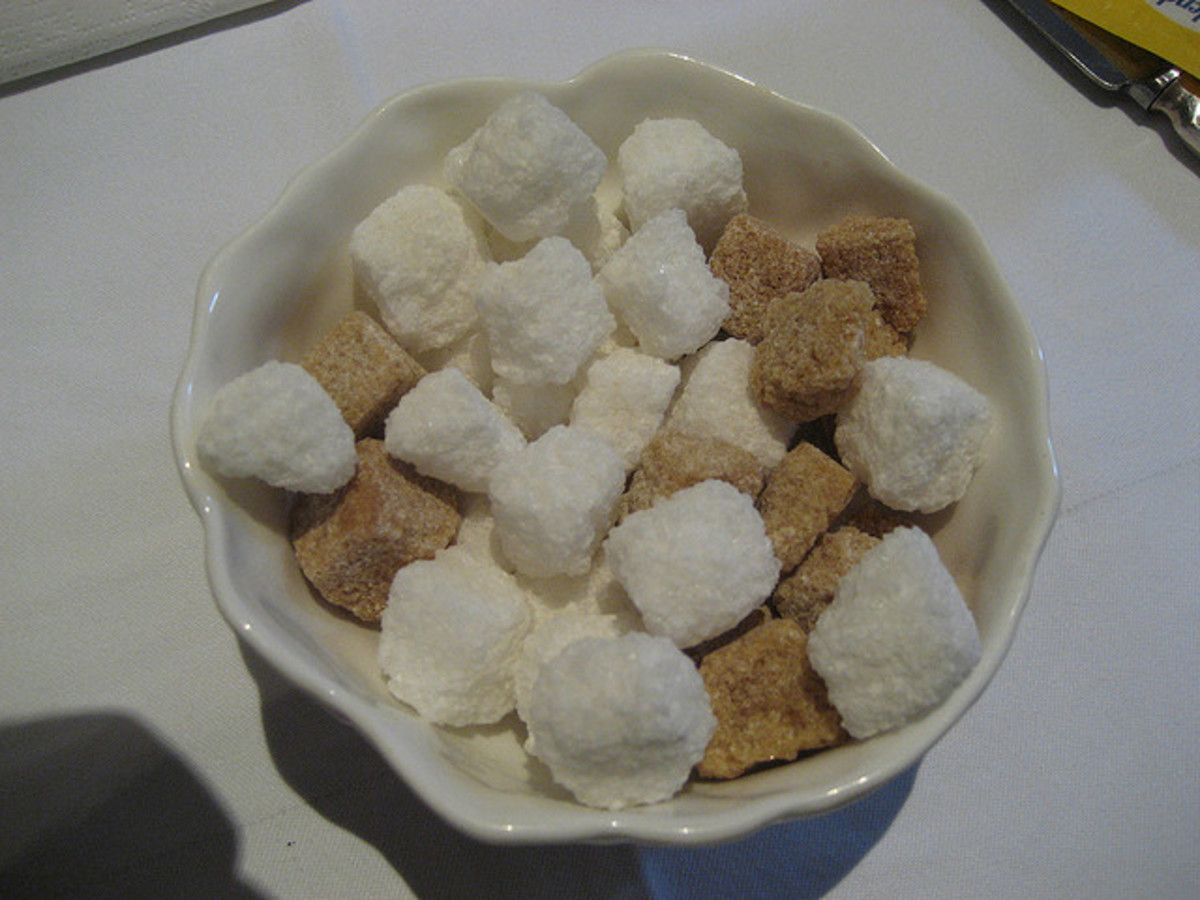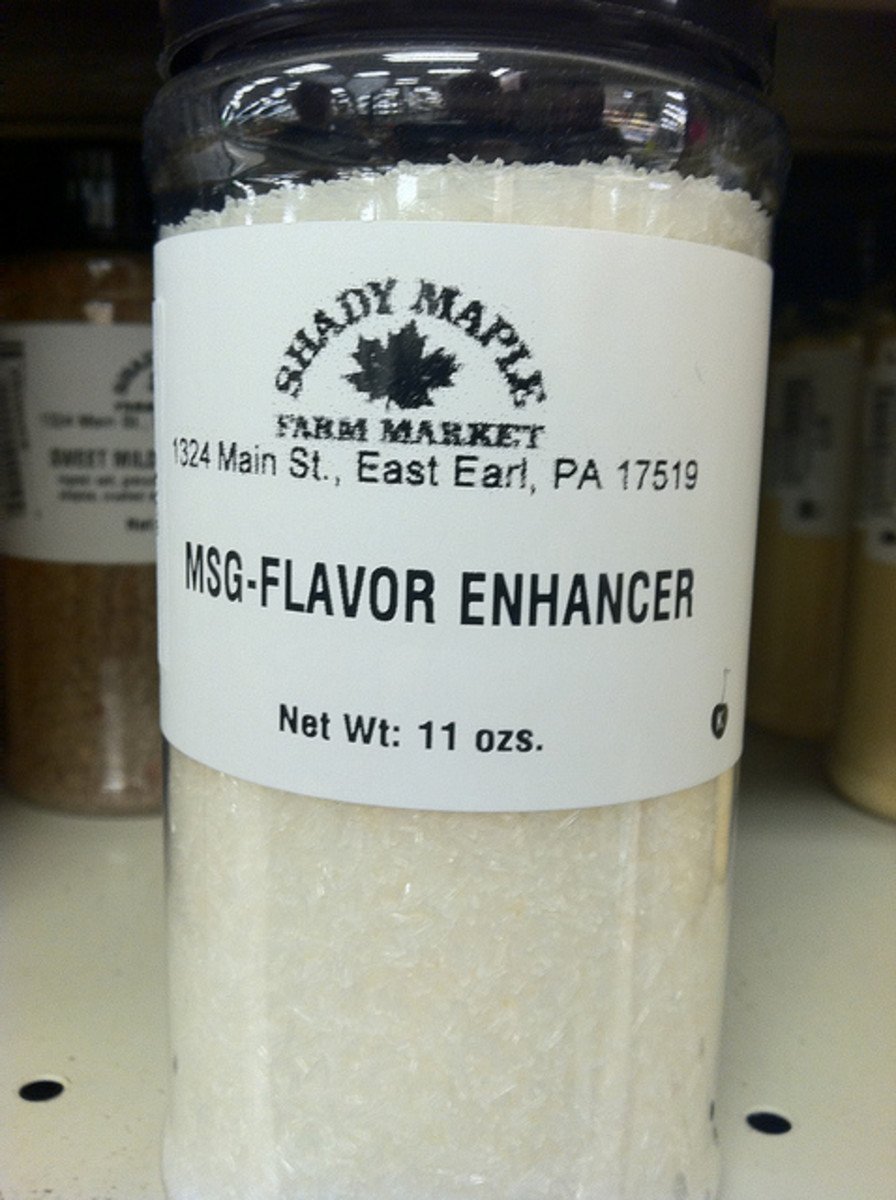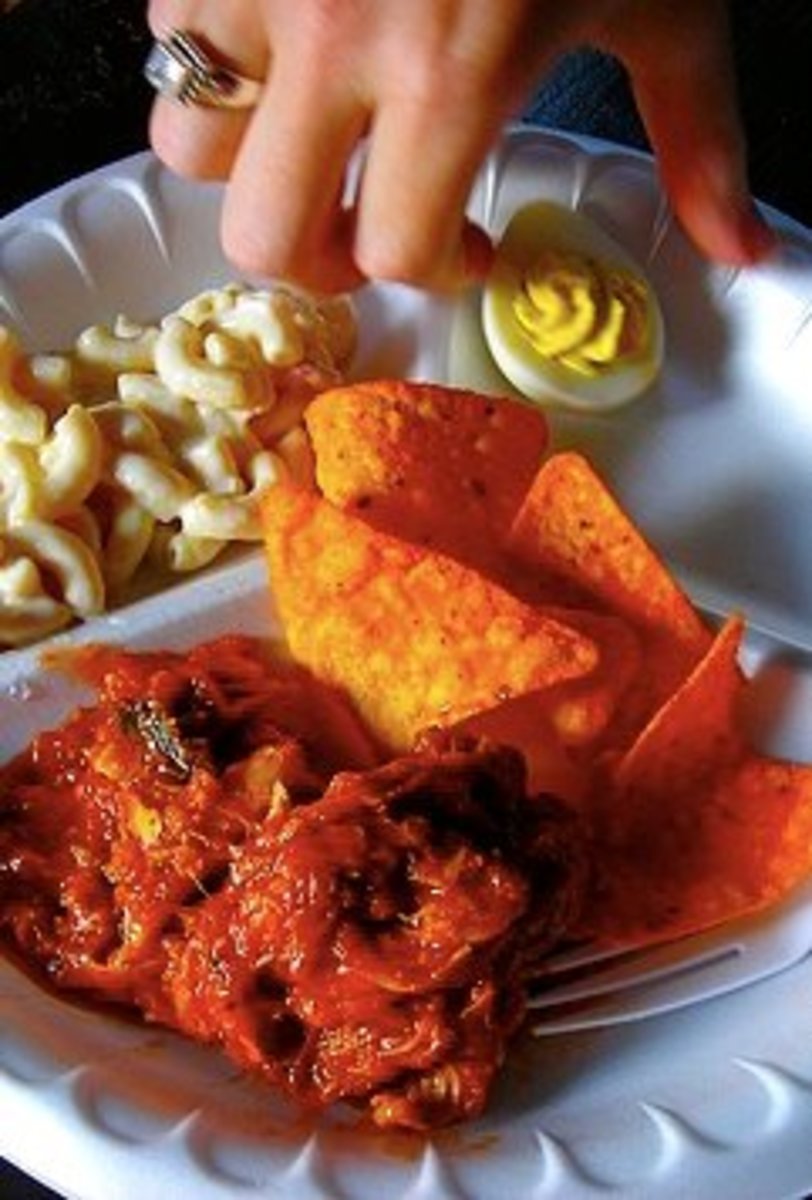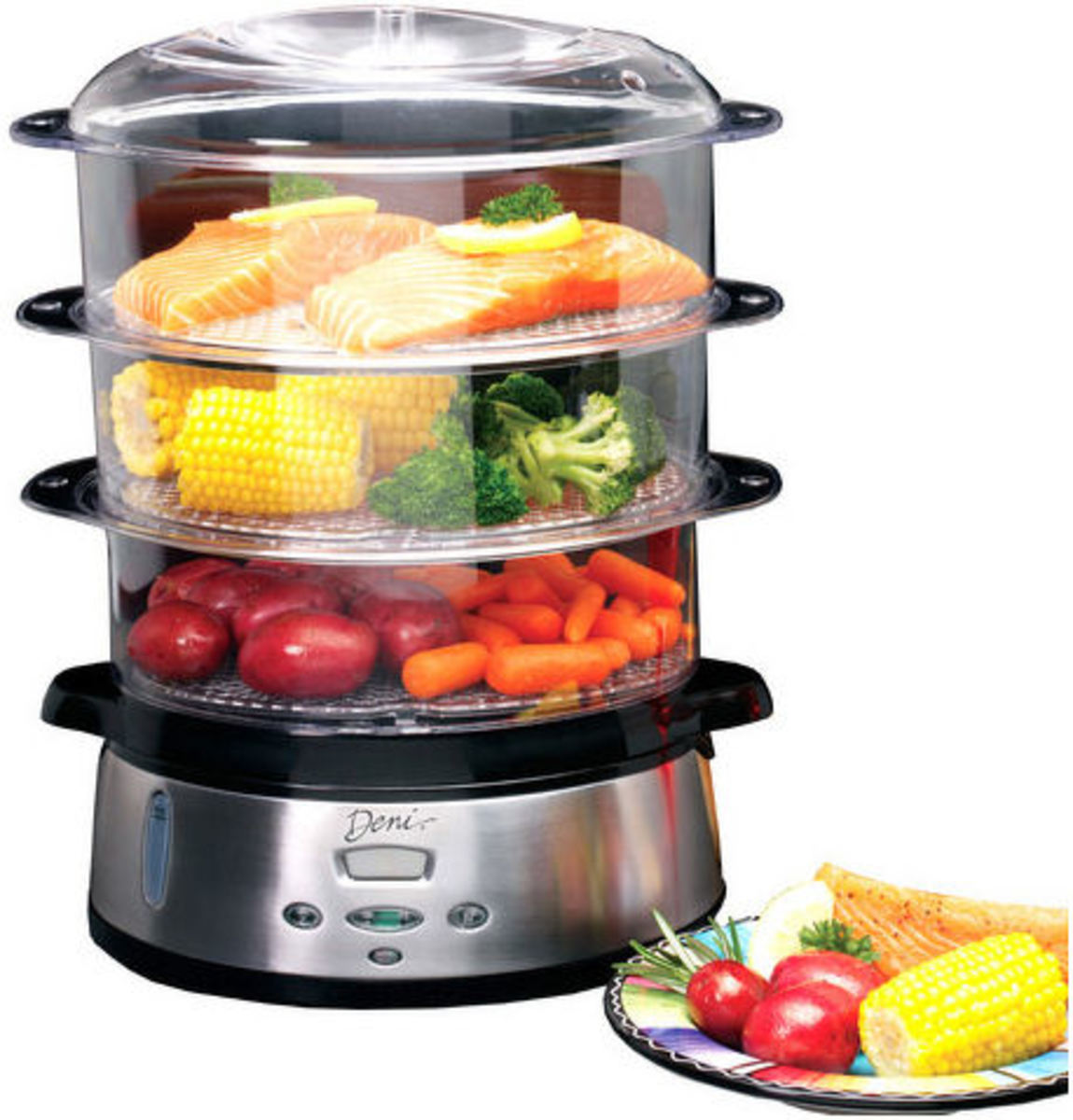Fructose Syrup, Salt and MSG...Oh My!

High Fructose Corn Syrup
When one thinks of high fructose corn syrup, we typically believe this comes from sugar. Wrong! High fructose corn syrup is derived from corn; hence the word corn in its title. Today, more people consume high fructose corn syrup (hfcs) than sugar. Making hfcs is a very complicated process, yet it is cheaper than using sugar as a sweetener. It takes fermenting liquids, chemicals and fungus to make hfcs from corn. It is easily piped into trucks for transportation, making it more desirable to ship than sugar as well.
Since hfcs is genetically produced, people hoping to avoid genetically modified foods should avoid hfcs. Unfortunately, research shows that almost 80% of what we eat has been genetically modified. Another study showed some disastrous results concerning fructose. Sucrose; or sugar is composed of both glucose and fructose. In a study of lab rats given glucose, little change was shown. However, when rats were fed strictly fructose; anemia, cholesterol increases and little rat hearts that actually enlarged so much they exploded were the end results. The little livers of the rats became plugged and enlarged as well. The females were unable to reproduce. In conclusion, fructose in large amounts caused sickness as well as death in the rats. Just think of what we are doing to our bodies when we consume hfcs!
Much of the foods created for children contain high levels of hfcs. I've taken to reading labels as if studying for an exam. I am shocked to find how many products such as yogurt, ketchup, juices, soft drinks, flavored waters, gatorade, spaghetti sauces, processed foods and more contain this "poison" for our bodies.
If you are like me, and are concerned about your children or yourself consuming too much of hfcs, consider the following:
- Limit processed foods.
- Avoid foods that contain added sugar.
- Choose fresh fruit rather than fruit juice or fruit-flavored drinks. Even 100 percent fruit juice has a high concentration of sugar.
- Choose fruit canned in its own juices instead of heavy syrup.
- Drink less soda.
- Don't allow sweetened beverages to replace milk, especially for children.
Sugar has both glucose and fructose but the fructose level doesn't pose as much a threat when using cane or beet sugar. Processing the fructose out of corn creates the harmful level of fructose that is added to so many of our foods.

Salt
After sugar, salt is the world's leading food additive. Sodium, while necessary for blood clotting, proper heart function, muscle contraction and fluid balance; can pose danger when taken in excess and it's important to know that it’s the excessive amounts of refined salt that are killing us.
All sodium is not the same. Table salt is highly refined but unrefined sea salt is naturally occurring and contains essential minerals including calcium and magnesium. The problem for many of us is that the food industry isn't using naturally occurring unrefined sea salt, rather they're using artificially created table salt which can cause serious health problems.
- High blood pressure
- Edema
- Kidney problems and kidney stones
- Hypertension
- Stroke
- Gastric cancer
- Left ventricular hypertrophy
- Osteoporosis.
and more ailments are linked to over use of salt at home and in restaurants.
Many foods – whole grains, meat and dairy products – naturally contain traces of sodium, while processed foods tend to contain a lot of salt. Some foods contain higher amounts of salt than you may expect.
Some suggestions for reducing the amount of salt in your diet include:
- Avoid adding salt to cooking and at the table.
- Choose reduced salt bread and breakfast cereals – bread is a major source of sodium in the diet.
- Avoid high salt foods.
- Cut back on processed foods.
- Cut back on takeaway and fast foods.
- Buy fresh vegetables rather than canned.
- Buy ‘low salt’ (contains less than 120mg/100g) or ‘salt free’ versions of commonly used foods, such as commercial sauces.
- Use herbs and spices such as garlic, oregano and lemon juice to add flavour to meals.
High salt foods that should be eaten sparingly include:
- Most ‘fast’ foods, such as pizza
- Most snack foods, such as potato chips
- Processed meats, such as sausages, salami, hot dogs and luncheon meats
- Canned vegetables
- Dehydrated or packet foods, such as instant pasta or soups
- Pre-packaged sauces and condiments, such as tomato sauce and soy sauce, and processed tomato products in general
- White bread and bread rolls.
Become a label reader where salt is concerned as well.
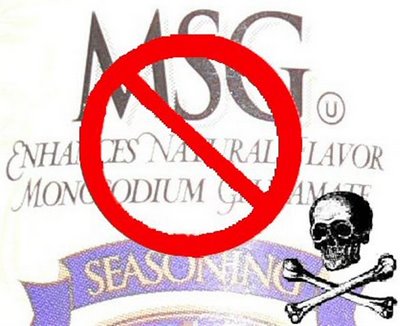
MSG
Chips, soups, salad dressing, sauces...many of these products and more contain mono-sodium glutamate or better known as MSG.
MSG is used as a flavor enhancer and is a commonly used food additive. It isn't necessary to use it but some people truly believe that it causes our bodies to crave certain foods, which causes us to eat more of them and thus, contributes to weight gain.
MSG has been linked to type 2 diabetes, obesity and high blood pressure. Glutamate can restrict blood vessels and trigger an eating response to those consuming it. Increased appetite encourages us to consume more of the product and typically, the product is not healthiest when it comes to food choices.
Four good rules of thumb are:
- The more salty a processed food is, the more likely it is to contain MSG or free glutamate.
- The more processed a food is, the more likely it is to contain MSG or free glutamate.
- The more ingredients in a packaged food, the more likely MSG is present. Read labels carefully . Time is money. If a food has more than five ingredients and you don't have half an hour to read one ingredient label - put it back on the shelf - you'll be better off.
- Do not trust something simply because it is in a health food store and the label states it is natural or even organic.The US allows "natural flavors" to include protein hydrolysates which can contain up to 20% MSG by weight.
I personally have noted that I encounter extreme edema (swelling) when I eat a product I didn't realize contained MSG in it. I now read labels for this additive as well.
To Live a Healthier Life...
I never realized how unhealthy so many of our foods were until my children recently went to the pediatrician for their physicals and were told they were overweight. I have fought my weight my entire life and didn't realize that my body was craving certain foods because of the dependency it had formed on fructose, salt and MSG.
It takes me longer to shop now and I probably spend more on groceries than I used to but converting my children, my partner and I to a healthier life style is much more important to me. I read every label, of every product now and have to determine for myself if the level of sodium in a product is more than I want us to eat. I avoid foods with high fructose corn syrup and choose items with sugar more often to avoid the processing used with fructose products. I don't worry about products containing glucose as much. I don't buy items with MSG anymore. Incredibly, my edema, which has plagued me my entire life is under control for the first time! It is wonderful to have "skinny" ankles and legs that don't hurt and feel as if they are compacted into a casing of skin. I have more energy and find I don't require as much sleep. I don't have as many aches and pains in my body either.
I have taken to drinking homemade coffee, diet green tea and lots and lots of water. I consume fresh vegetables and 2-3 helpings of fruit daily and have upped my protein and dairy sources; choosing lean and fat free options. I've switched from my favorite yogurt to a different brand because my old yogurt uses fructose corn syrup, even though it's fat free!
All of these changes are not easily done. I have 47 years of training my body to enjoy the foods that have been secretly pushing me towards my demise. My children and man both crave the packaged, greasy foods they have become accustomed to and beg for sweets or fast food at least once a week. I do give in occasionally but not every day. This is not a diet, rather a life change because I'd like to live to a ripe old age and feel good about myself. I want to continue walking in the woods and be able to use my own legs to do so.
I encourage you to become a label reader yourself. It's simply amazing the processing that has taken place with our food. The health of Americans is in a catastrophic decline and I never knew why. Yes, the three items I mentioned are just the tip of the iceberg; however, one has to start somewhere. I have found these three items to be my biggest nemeses. I hope you can find yours.
© 2009 Laura Cole


